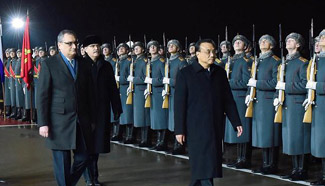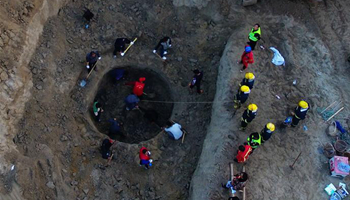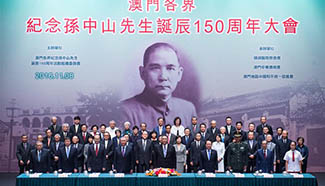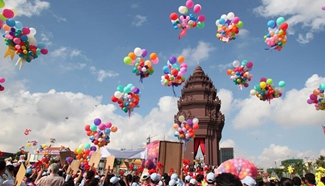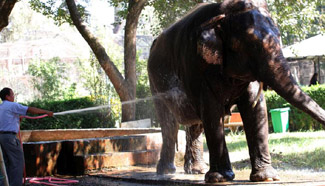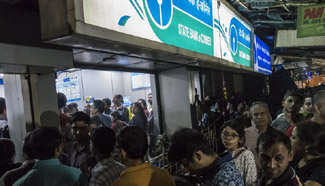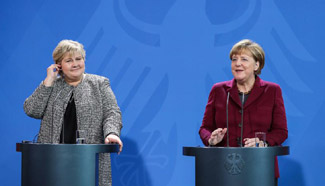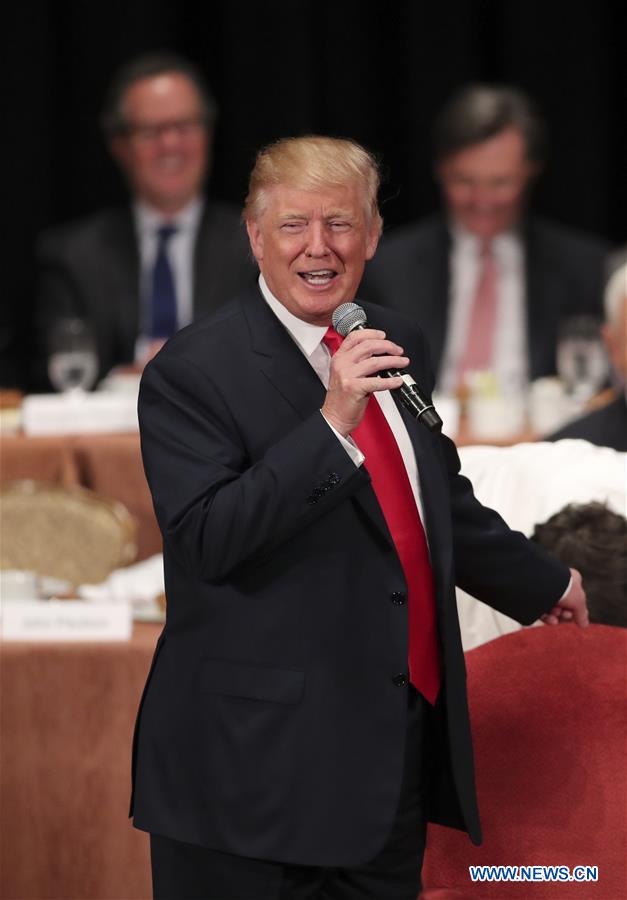
File photo taken on Sept. 15, 2016 shows U.S. Republican presidential candidate Donald Trump delivers a speech during a luncheon meeting of the Economic Club of New York in New York, the United States. Republican candidate Donald Trump was projected by U.S. media early on Nov. 9, 2016 to have won the 270 electoral votes needed for presidency.(Xinhua/Wang Ying)
by Xinhua writers Zhu Lei, Qi Zijian
NEW YORK, Nov. 9 (Xinhua) -- American voters will wake up Wednesday morning knowing that Donald Trump is their new president but still feeling confused about where the country will go.
The bitter race for the White House, which pitted the two most polarizing candidates in recent memory, has left voters on both sides of the political divide anxious about the future of their country.
In an election year when Americans were eager to hear policy positions on real issues facing the country, the most important issues along the campaign trails were Trump's comments on women and Democratic candidate Hillary Clinton's email scandal.
From the lewd tape of Trump's bragging about sexual assault, to the FBI's probe of Clinton's handling of classified information, the tug of war has been abundant in "October Surprises" that brutally tortured the voters. It was undoubtedly a race to the bottom.
Many voters felt frustrated or even despaired that they had no other choice but to choose from the two most disliked candidates in American history.
When negative campaigning took it way, when presidential debates were reduced to endless personal attacks, and when casual conversations between friends and family could blow up into hurtful arguments, social consensus or reconciliation has become luxury.
Fearful of the animosity that will trail the winner to the White House, a majority of Americans do not believe the country's new president could put the fractured nation back together.
The presidential race should have provided an opportunity for a collective introspection on America's social and economic policies. Yet remedies seem out of reach to the structural problems such as political polarization, the shrinking of the middle class, gun control, health care and racial discrimination.
Denouncing free trade while vowing to build a wall along the border with Mexico to fend off illegal immigrants, Trump has raised eyebrows even within the Republican Party.
The rise of the political outsider playing into the anger and frustration of those left behind in globalization has exposed grim domestic issues that have their deep roots in the increasing socio-economic inequality.
Neither will Trump's populist charge cure the social and economic woes of America, nor will the clamorous campaign rhetoric of taking other countries as scapegoats.
The 2016 election also sent a clear signal that the U.S. political system is faltering as Trump's election marks a climax of anti-establishment sentiment inside the country.
The rise of Trump deepens the divide between the rank and file and the elite within the Republican Party, triggering prediction of a party breakup. How the party establishment will rally behind the unpredictable new president is worth watching.
Clinton's struggle with long-shot challenger Bernie Sanders in the primaries also exposed the rising wave of anti-establishment sentiment and anger over the status quo on the Democratic side.
The populist, anti-establishment wave on both sides of the political spectrum sounded an alarm for the American society in the years to come.
Republicans in Congress have pursued a strategy of unified opposition to Democrats during President Barack Obama's eight years in office. Now, with the Republicans taking back the control of the White House, whether they are willing to put an end to the partisan gridlock is an open question.
The probably most divisive and scandalous election in American history has eroded voters' faith in the two-party system, as many voters called it a game of money, power, and influence.
The nasty campaigns have also tarnished America's image abroad. U.S. Secretary of State John Kerry has said recently that the 2016 presidential race has humiliated America on the world stage, stressing that "there are moments when it is downright embarrassing."
In his 1951 novel of "The Catcher in the Rye," American writer J.D. Salinger advised, "Remember what should be remembered, and forget what should be forgotten. Alter what is changeable, and accept what is mutable."
Many voters, however, will take a long time to put to rest the anxiety, bewilderment and desperation they have experienced in 2016.





